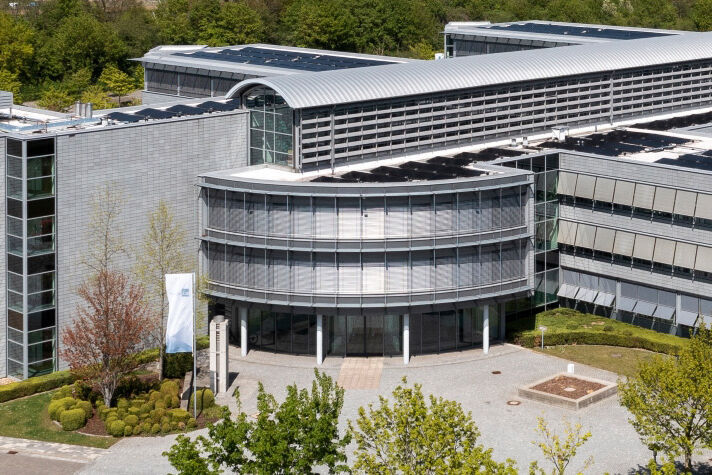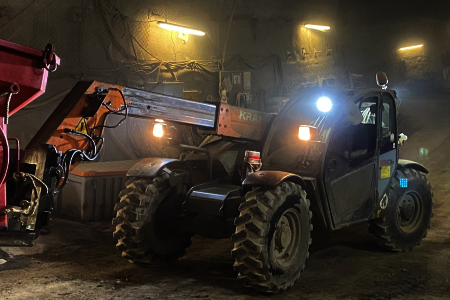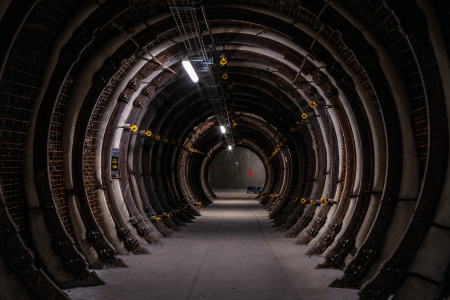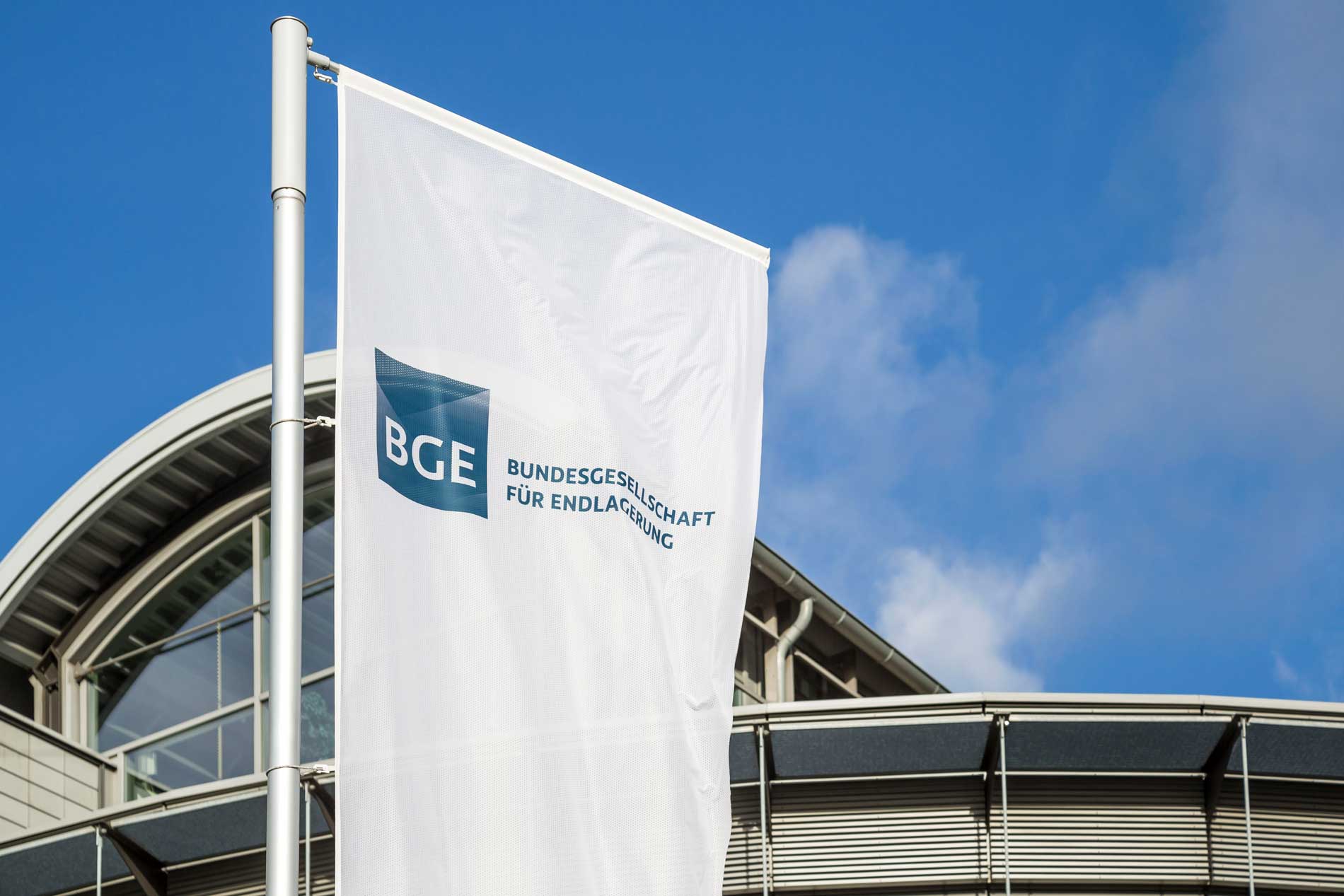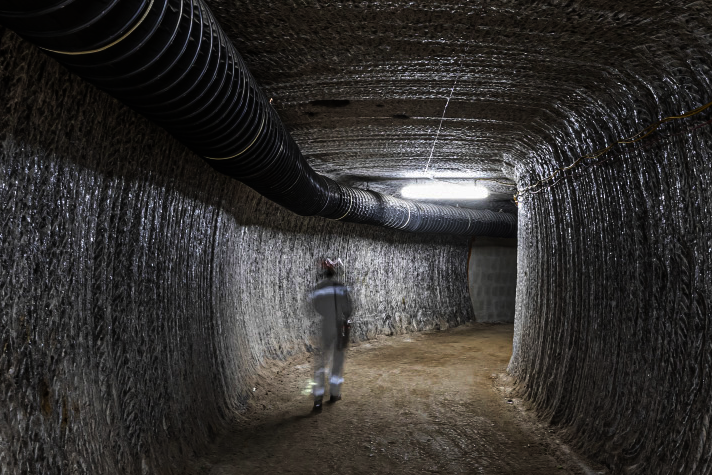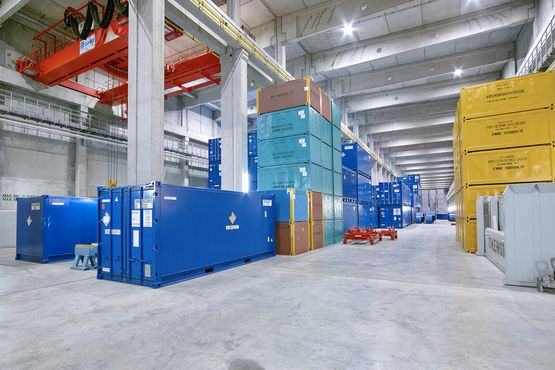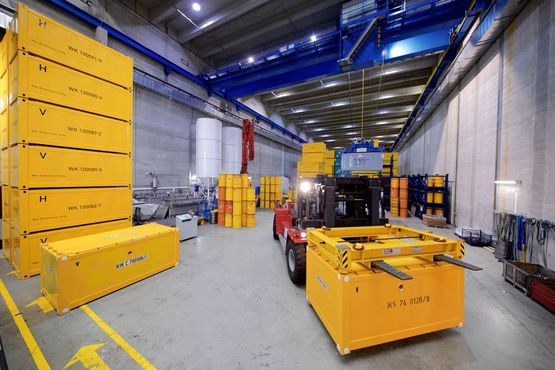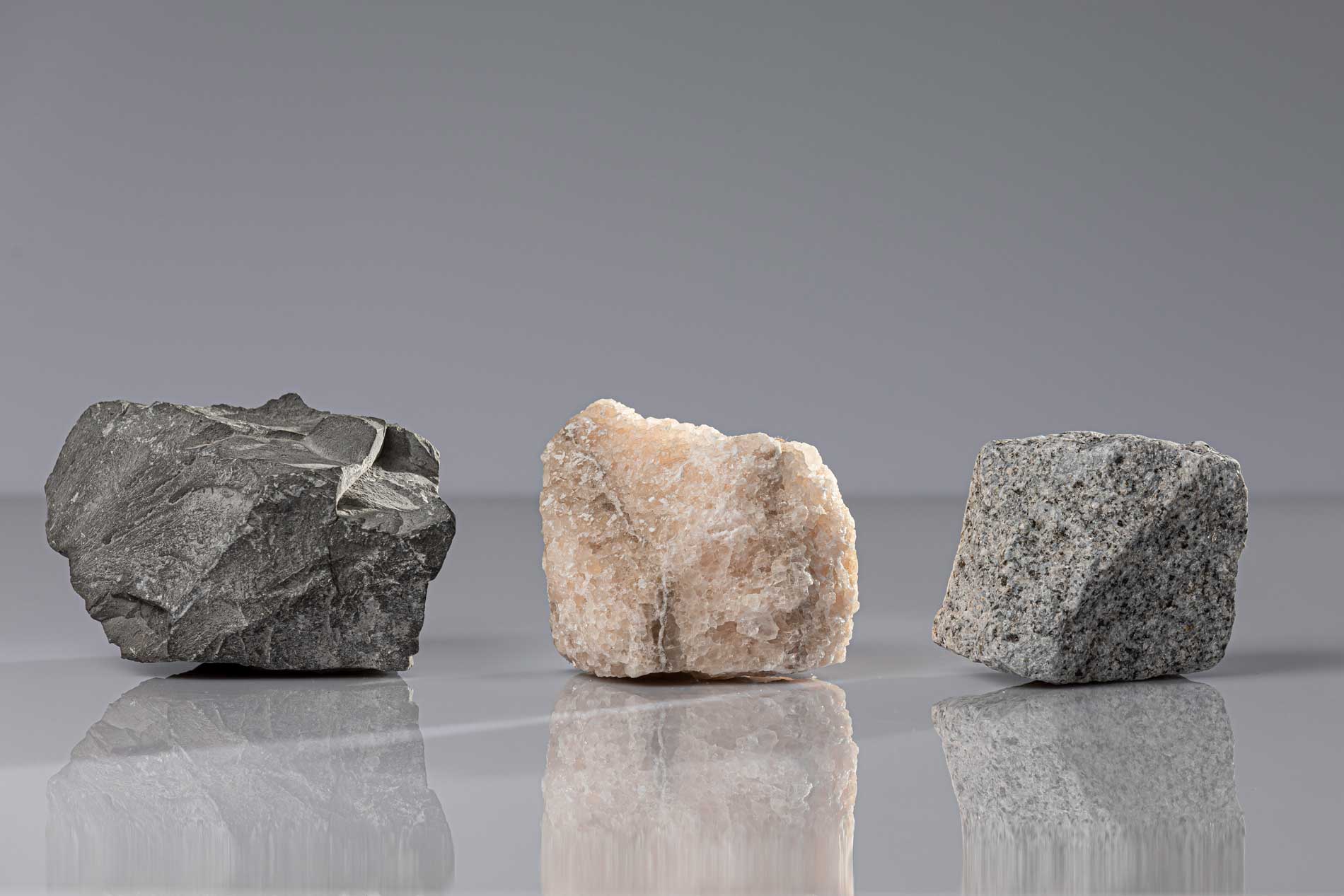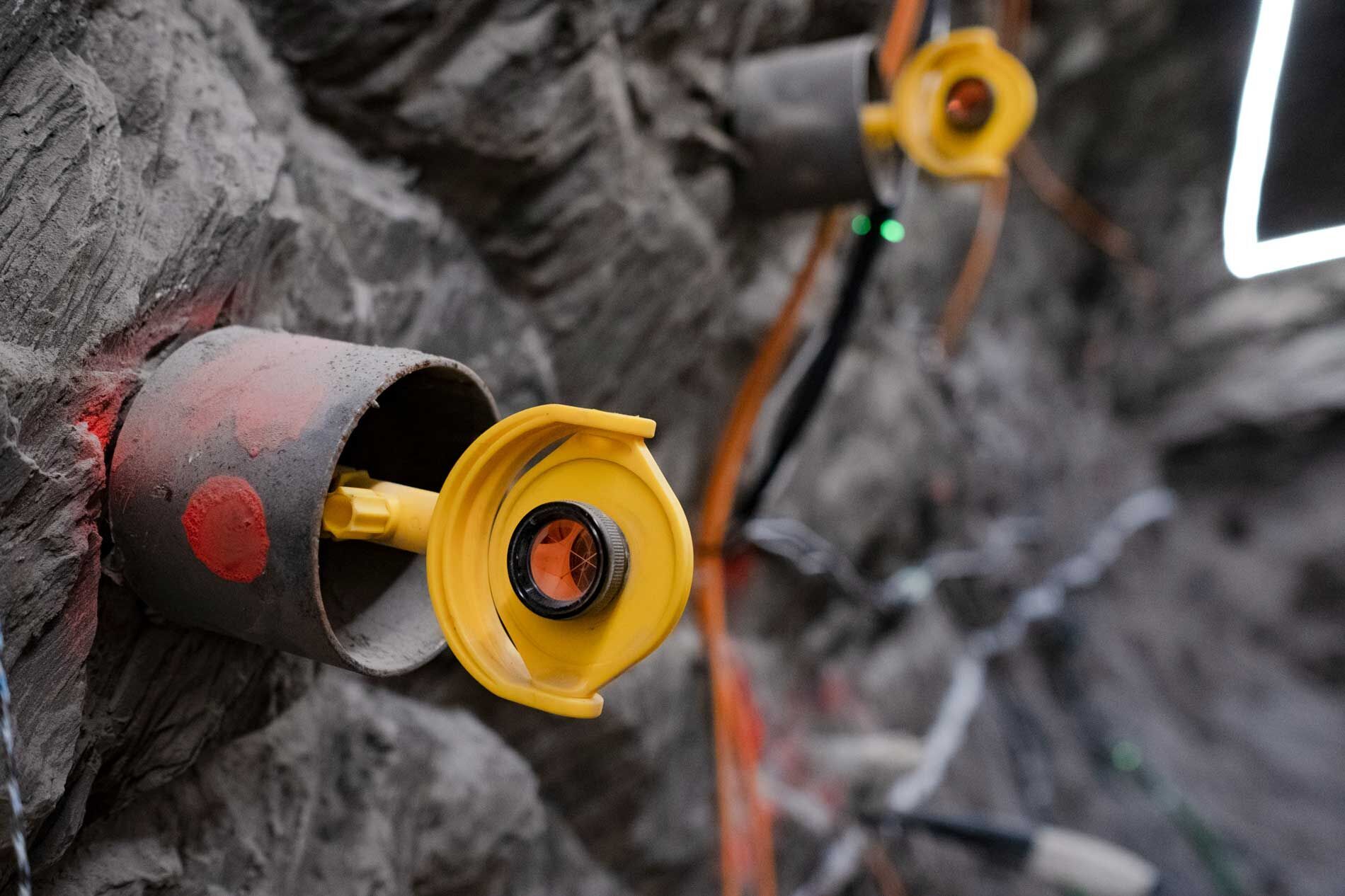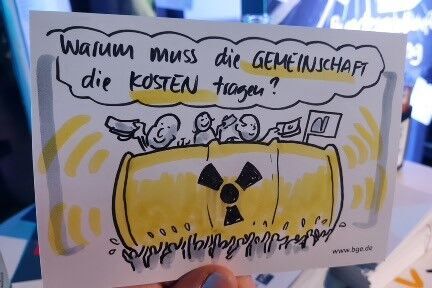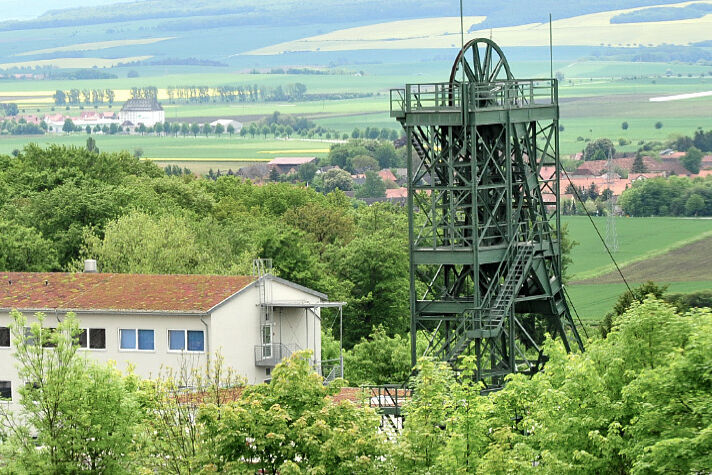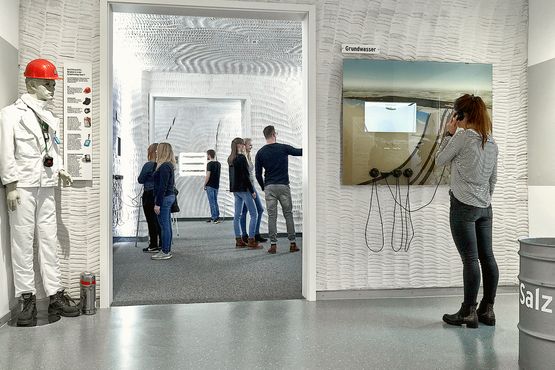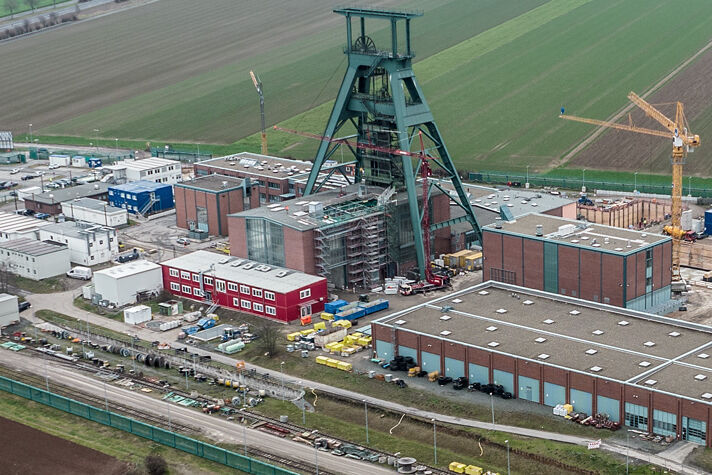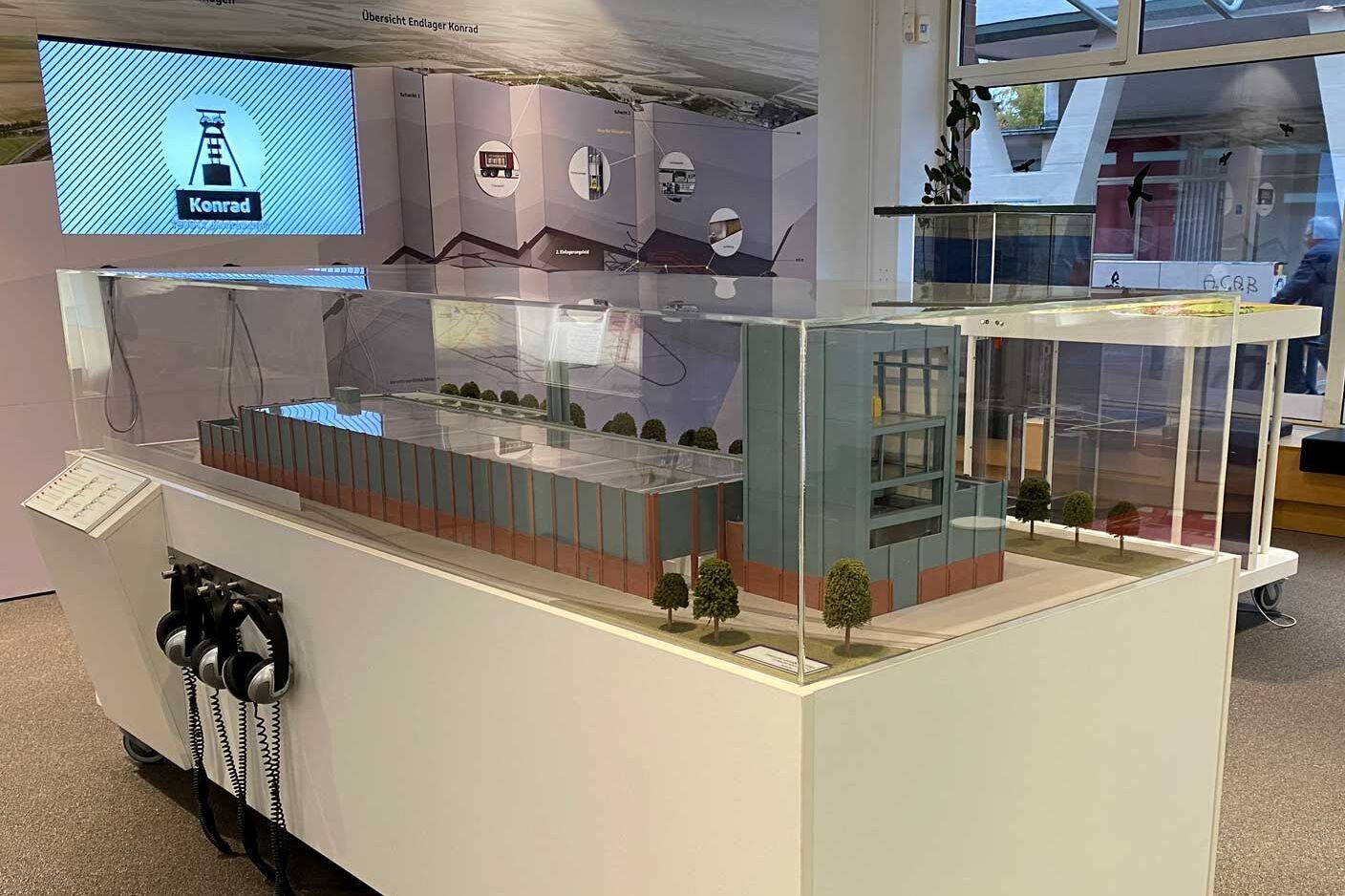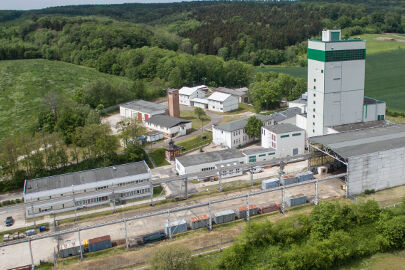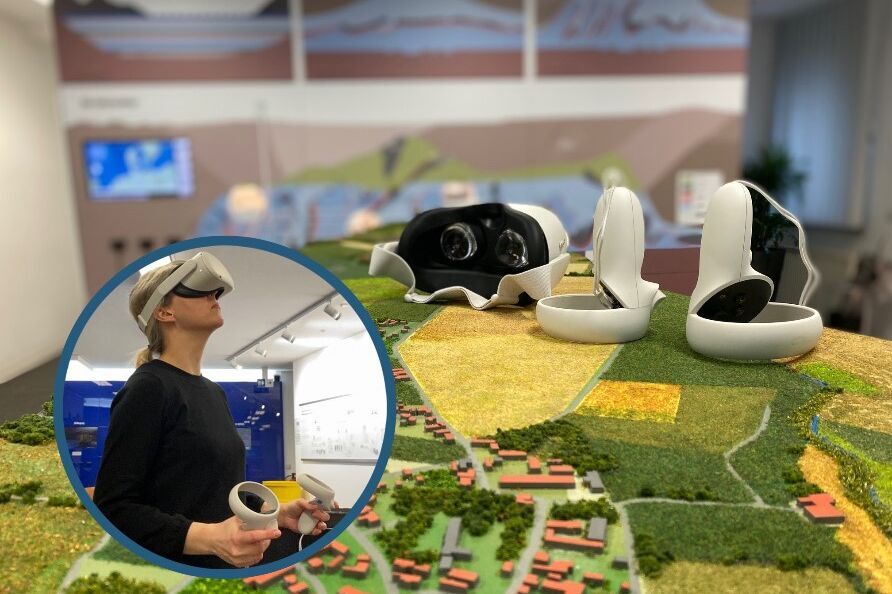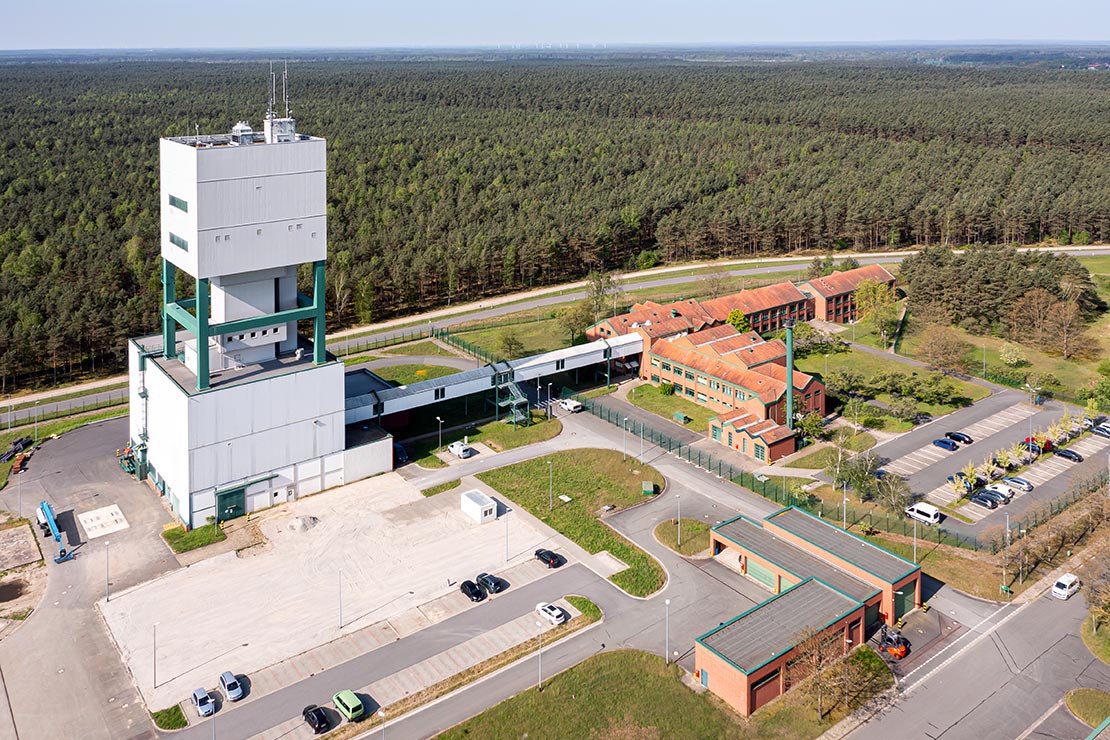Two-day workshop on the research needs of the BGE ends with many recommendations
On 19 and 20 March 2019, the Bundesgesellschaft für Endlagerung (BGE) discussed its research needs for the site selection, construction, operation, and safe closure of a repository for high-level radioactive waste in Germany with around 100 scientists from the field of repository research as well as representatives of the Federal Ministry for Economic Affairs and Energy (BMWi), the Federal Office for the Safety of Nuclear Waste Management (BfE), and the National Civil Society Board (NBG). In the run-up, some researchers have pointed out gaps or temporal classifications on the way to the repository or suggested a better structuring. The BGE will now evaluate this information and the work results of the two-day workshop, revise the research needs, and present the results at a public event at the German Museum of Technology in Berlin on 10 April 2019.
The BGE is currently working on the basis of the “white map” to identify sub-areas with favourable geological conditions for further exploration. The sub-areas interim report will be presented in 2020. “No prior decisions have been made”, emphasised Steffen Kanitz, Deputy Chair of the Management Board, in Braunschweig during his introduction.
During the workshop, geoscientific issues in particular were discussed. These include questions on the prediction of geological conditions over very long periods or how gentle exploration must be so that a potential site is not called into question by the effects of exploration activities such as drilling. The radioactive inventory was also discussed. For example, it was discussed whether spent MOX fuel elements containing plutonium behave like spent uranium fuel elements or must be treated differently. This question plays a decisive role in the consideration of repository concepts. The scientists intensively discussed repository container concepts that still allow safe handling in the event of recovery 500 years after the repository mine has been sealed. Intensive cooperation between the BGE and BGZ Gesellschaft für Zwischenlagerung (which is responsible for container development) is necessary on this issue.
During the safety analyses, the experts questioned what interactions can occur between materials that are introduced (i.e. containers, sealing materials, and backfill materials with which the repository is to be sealed at the end) and the various host rocks (i.e. rock salt, clay rock, or crystalline rock). The experts see a lot of need for research here.
The BGE also had to listen to some criticism because the original paper documented that there is still a considerable need for research with regard to the socio-scientific consideration of the site search. But over the two days, the experts involved developed five fairly concrete research tasks that the BGE will now address. This includes looking at the “overall system” of the repository search. This refers to the institutional structure, the social debate, the embedding in the political consensus on a repository, and the work of the engineers and scientists directly in the site search. Whether the BGE can be the right client for such a consideration must be discussed. However, the responsibility is quite clear when it comes to surveying attitudes towards final disposal over time or measuring the public’s image of the BGE. The extent to which recourse to international social science research is possible in the specifically German repository search process was one of the controversial topics discussed. The need for a definition of central concepts in the discussion (e.g. security, participation, or justice in transition) was also noted at the workshop in Braunschweig.
Steffen Kanitz, Deputy Chair of the BGE Management Board, concluded by thanking the experts for “taking the time to engage in an unconventional format”. The head of repository site selection, Dr Jörg Tietze, announced that the proposals would be processed, documented, and published. “The repository site selection team will now prioritise the suggestions in terms of time and will continue to seek dialogue on research needs”, he said after the event.
The public event in Berlin will take place at the Museum of Technology, Trebbiner Straße 9, 10963 Berlin on 10 April 2019, from 6:00 to 8:00 p.m. Registrations are possible here: veranstaltung-berlin(at)bge.de
The BGE is a federally owned company within the portfolio of the Federal Environment Ministry. On 25 April 2017, the BGE assumed responsibility from the Federal Office for Radiation Protection as the operator of the Asse II mine and the Konrad and Morsleben repositories. Its other tasks include searching for a repository site for the disposal of high-level radioactive waste produced in Germany on the basis of the Repository Site Selection Act, which entered into force in May 2017. The managing directors are Stefan Studt (Chair), Steffen Kanitz (Deputy Chair), Beate Kallenbach-Herbert (Commercial Manager) and Dr Thomas Lautsch (Technical Manager).

